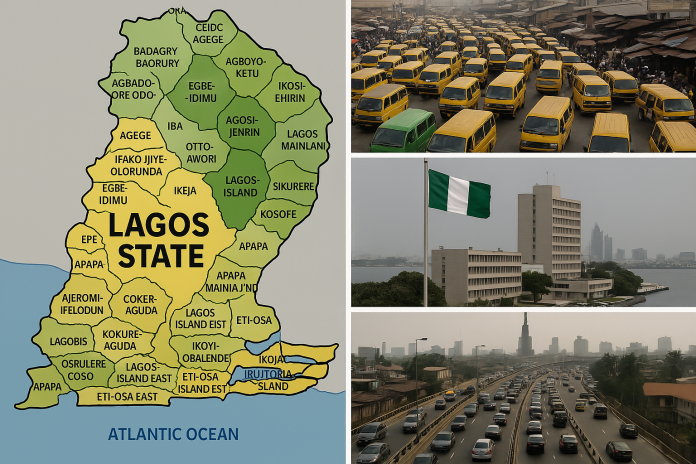In a historic move, the House of Representatives has passed a bill aimed at elevating Lagos State’s 37 Development Area Councils (DACs) to fully recognized Local Government Areas (LGAs). If enacted, this legislation will expand the number of LGAs in Lagos from 20 to an astonishing 57, positioning the state as the leader in local governance across Nigeria.
The bill, titled “A Bill for an Act to Alter the Constitution of the Federal Republic of Nigeria, 1999 (as amended) to Accommodate the Thirty-Seven (37) Development Area Councils of Lagos State as Full-Fledged Local Government Areas, Increasing the Total Number of Local Government Areas in the Federation to Eight Hundred and Eleven (811), and for Related Matters (HB. 1498),” was one of 42 constitutional amendment bills passed during Wednesday’s plenary session. The initiative, sponsored by Hon. James Abiodun Faleke and other prominent lawmakers, successfully completed its second reading under the leadership of Deputy Speaker Benjamin Kalu.
If signed into law, this bill will increase the total number of LGAs in Nigeria from 774 to 811, allowing Lagos to surpass Kano and Katsina, which currently have 44 and 34 LGAs, respectively. The proposed expansion aims to enhance governance at the grassroots level, fostering improved administrative efficiency and a more localized approach to governance in the bustling megacity. Political analysts have commended this initiative, viewing it as a crucial step toward empowering Lagos to better address the needs of its ever-growing population.
However, the implications of this bill extend beyond mere numerical changes. Constitutionally, the alteration of local government structures necessitates careful consideration of the existing legal framework. Specifically, Section 8 of the 1999 Constitution outlines the process for the creation of new Local Government Areas. This section requires that any new LGAs must be established through an act of the National Assembly, following a clear procedure that includes a public hearing and a review of the proposed areas by the relevant authorities. This ensures that changes align with the principles of federalism enshrined in the Constitution, particularly concerning the distribution of powers and responsibilities between federal and state authorities.
The successful passage of this bill may set a precedent for other states seeking to reform their local governance structures, potentially prompting similar initiatives across the country. Additionally, the increase in LGAs could require adjustments in the allocation of federal resources, raising concerns about equity and representation in governance.
Despite the promising prospects, the bill must undergo further legislative review before it can be fully implemented. If ultimately passed into law, it will represent a significant evolution in Nigeria’s governance landscape, particularly for Lagos State, as it seeks greater autonomy and enhanced service delivery for its residents.
Newspot Nigeria will continue to monitor developments surrounding this groundbreaking bill and provide timely updates as the situation unfolds.
Share your story or advertise with us: Whatsapp: +2347068606071 Email: info@newspotng.com

















